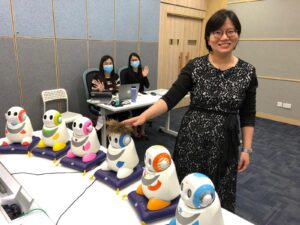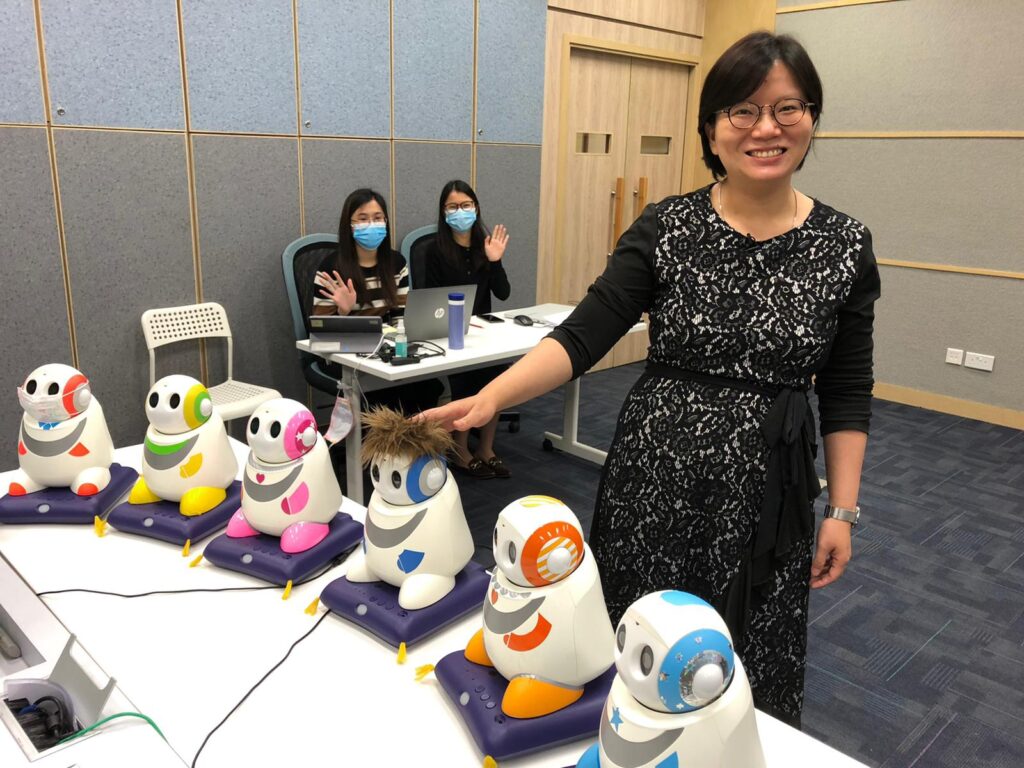CUHK
News Centre
CUHK’s innovative social robot intervention programme for autistic children carries off runner-up at 2022 WITSA Global Innovation and Tech Excellence Awards
The Global Innovation and Tech Excellence Awards from the World Innovation, Technology and Services Alliance (WITSA) are well known as the Oscars of the information and communications technology (ICT) industry. Professor Catherine So Wing-chee and her team from The Chinese University of Hong Kong (CUHK)’s Department of Educational Psychology have been awarded runner-up in the E-Education and Learning Award category for their innovative educational modal, Robot for Autism Behavioral Intervention® (RABI®), making them the only team from Hong Kong to receive the honour.
Professor So and her team kicked off the RABI® project in 2016 and established Science and Technology for Autism Remediation (STAR) Limited in 2020, providing an effective robot-based intervention programme for individuals aged 3-18 with autism spectrum disorder (ASD). Pioneering in Hong Kong, the programme’s vision is to enhance the social inclusion of autistic children and equip them with the necessary social, behavioural and communications skills. To date, the programme, which comes in Cantonese, Mandarin, and English versions, has served 2,200 autistic individuals in Hong Kong, Macao, the United Kingdom, and Australia.
Professor So is deeply honoured to be nominated by the Hong Kong Information Technology Federation (HKITF) and given the runner-up award. She said, “The chance to compete with ICT experts around the globe is a recognition of the team’s constant efforts to research and introduce robots to the education of autistic children. I sincerely hope that there will be more advanced technology that aids special education, enhances the learning experiences of autistic children, and benefits more families.”
The Global Innovation and Tech Excellence Awards were set up with the aim of commending individuals, public and private entities from all over the world who are harnessing the benefits of digital technology to improve the well-being of humankind. The selection committee this year received more than 100 well-qualified nominations covering numerous fields, including smart cities, healthcare, education, the economy and more; and announced 20 organisations as winners, also recognising seven runners-up and six merit winners.

Professor Catherine So (first from right) and her team from CUHK’s Department of Educational Psychology have been awarded the runner-up prize in the E-Education and Learning Award category at the 2022 WITSA Global Innovation and Tech Excellence Awards. They were given the award for the project Robot for Autism Behavioral Intervention®.


